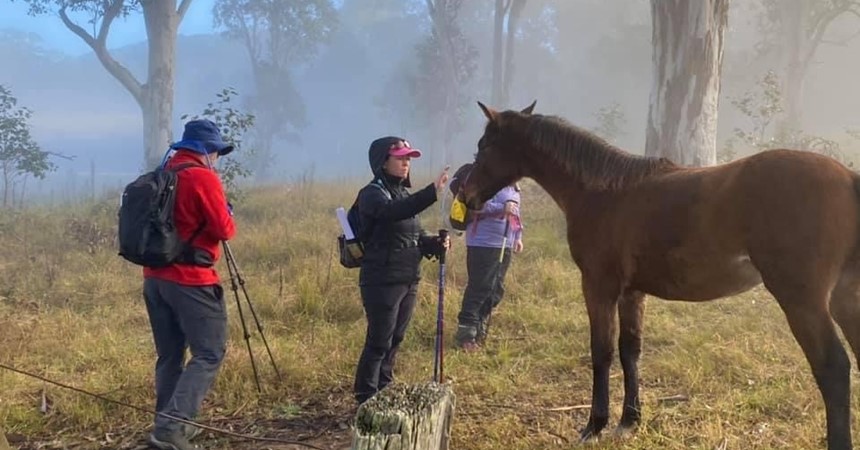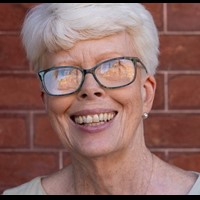Two things are prompting my reflection. Firstly, the Diocesan Liturgy Council’s ongoing reflection on the Diocesan Synod Paper, particularly though not exclusively on the ‘Worship and Prayer’ paper. And secondly, it is the season of Confirmation and First Communion.
In the 22 June Liturgy Matters we reflected on Eucharist in the Synod Paper, specifically the need that we the people identified to deepen our understanding of Eucharist. As I indicated then, the Liturgy Council has been endeavouring to engage the community in this space for years. It is fair to say that while people find new life in deepening their understanding of Eucharist, there is resistance to changing much about how we celebrate Eucharist, including the frequency and context of our celebrations.
So what does the Synod Paper reveal about this local Church’s insight into ‘sacrament’. Dare I say it reveals very muddy waters, and our need to deepen our understanding of ‘sacrament’.
Sacrament is key to our Catholic life and understanding: of God and ourselves, of life and liturgy, of community and mission. The word ‘sacrament’ captures the rich, deep, wide, mind blowing mystery that stands at the heart of our Catholic world view. Yet to a significant degree we have confined our understanding and placed ‘sacrament’ in a tiny box whose label is ‘Sacraments’. Note the capital letter. Note the plural. That word refers to the seven Sacraments. Primarily this is the understanding of ‘sacrament’ that is found in the Synod papers and with a specific concern for the ‘Sacraments of Initiation’. And it is this ‘7 Sacraments’ understanding that the Synod Paper does say we need to develop.
That would be to start in the wrong place. To deepen our understanding of the wonderful mystery that is ‘sacrament’ we need to start with the word ‘sacramentality’. The invitation to do this is found in the Synod Paper as a foundational statement in the Worship and Prayer paper. (p.17)
We know that life has a sacramental dimension and that our sacramental rituals are moments of deeper communion with the God who created us for love.
Thence follows a number of quotes that talk about ‘Sacraments’ in the context of ‘sacramentality’. Even discussing the foundational statement would open a pandora’s box.
‘Sacramentality’ or a ‘sacramental framework’ stretches our minds and hearts to appreciate and live the church’s rich, deep and wide understanding. Our sacramental framework would look something like this:

Imagine what the preparation for and celebration of the Sacraments of Initiation would be like if it embodied and led people into such a rich understanding of sacrament; one that formed them for life as a sacramental people – a community of lifelong missionary disciples. Such an understanding would challenge any reference to ‘programs’ and prioritise relationship with Jesus and the community of faith. It would free us from the old ways and enable a raft of new ways to fall into place. I long for this day!
The Synod Paper calls for a re-examination of the way we do Sacraments of Initiation. Parishes were invited and resourced to do so last year during COVID restrictions. However, as with Eucharist, there seems to be resistance to, or perhaps a lack of energy for, changing the way we do Sacraments of Initiation.
Session Two of the Synod is meant to lead us to develop a Spiritual Framework for Building the Kingdom of God Together in the Diocese of Maitland-Newcastle. A deep and rich understanding of ‘sacrament’ would need to be at the heart of such a framework.
As you continue to reflect on our Catholic notion of ‘sacrament’, you might like to read the reflection ‘Living Sacramentally’ and/or pray the hymn Everyday God.
You might also like to reflect on:
- a precious sacrament in your home …
- a sacrament in creation …
- someone who is a sacrament for you …
- how you are a sacrament of God’s presence for others …
Together we bring our everyday experiences of God to the celebration of Eucharist on Sunday, where we offer ourselves with Christ to be changed; to become living sacraments of praise and thanks all day, every day.
Together we have the opportunity to let go of our small understanding of ‘sacrament’ and rise up to the one at the heart of the Church’s life and mission. I would like to live in a church that did that.
Acknowledgements
Image: © Rose McAllister. Diocese of Maitland-Newcastle. All rights reserved.

